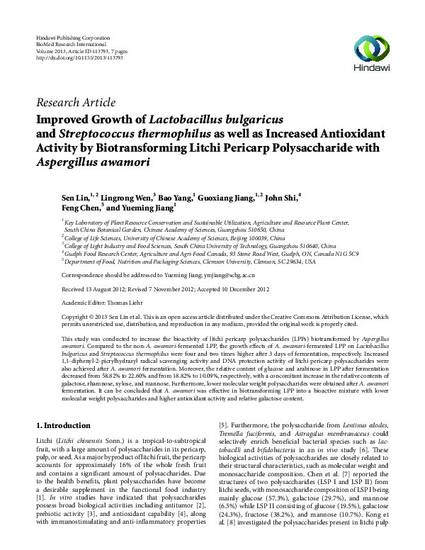
This study was conducted to increase the bioactivity of litchi pericarp polysaccharides (LPPs) biotransformed by Aspergillus awamori. Compared to the non-A. awamori-fermented LPP, the growth effects of A. awamori-fermented LPP on Lactobacillus bulgaricus and Streptococcus thermophilus were four and two times higher after 3 days of fermentation, respectively. Increased 1,1-diphenyl-2-picrylhydrazyl radical scavenging activity and DNA protection activity of litchi pericarp polysaccharides were also achieved after A. awamori fermentation. Moreover, the relative content of glucose and arabinose in LPP after fermentation decreased from 58.82% to 22.60% and from 18.82% to 10.09%, respectively, with a concomitant increase in the relative contents of galactose, rhamnose, xylose, and mannose. Furthermore, lower molecular weight polysaccharides were obtained after A. awamori fermentation. It can be concluded that A. awamori was effective in biotransforming LPP into a bioactive mixture with lower molecular weight polysaccharides and higher antioxidant activity and relative galactose content.

This is an open access article distributed under the Creative Commons Attribution License, which permits unrestricted use, distribution, and reproduction in any medium, provided the original work is properly cited.